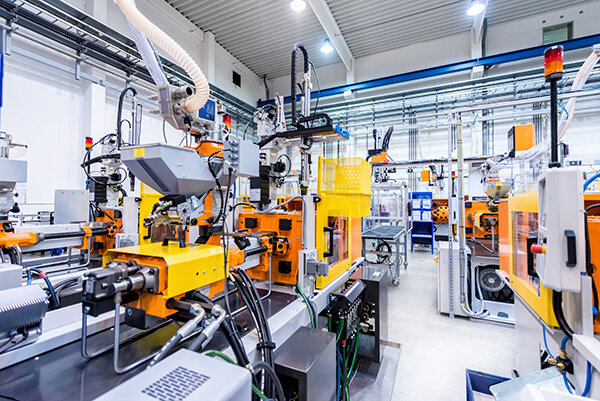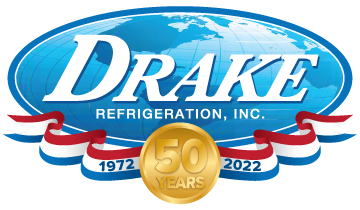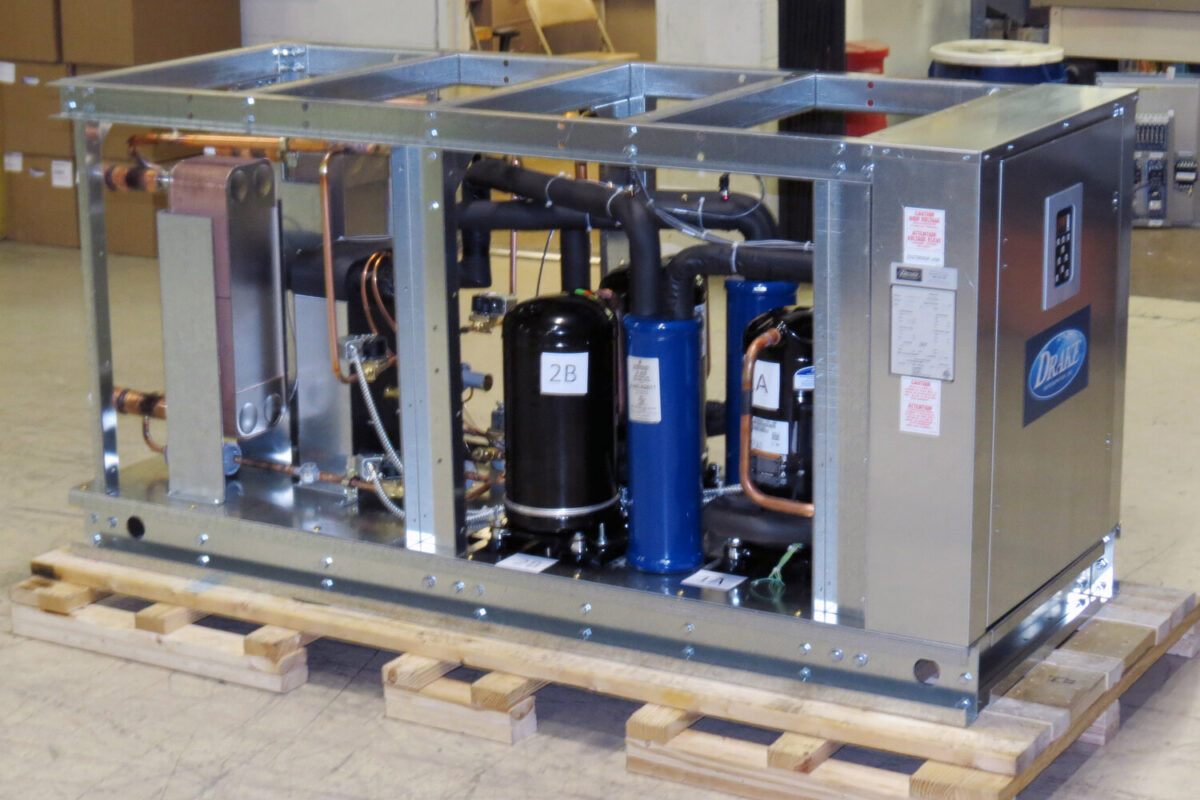Choosing an industrial process chiller for your manufacturing application is a critical operational decision with the power to boost your productivity, efficiency, and profits. So, how do you know which one is best for you when the chiller’s size, type, and configuration vary depending on your application, budget, and requirements? This post will help clarify what to consider when selecting the right process chiller and introduce you to our most recommended systems for manufacturers.
But first, let’s begin with examples of manufacturing applications that can benefit from an industrial-grade chiller and an explanation of the differences between the various systems.
Manufacturing applications
Virtually any manufacturing operation can benefit from an industrial-grade chiller. These high-performance systems are designed to keep your machines cool, even amid the excessive production heat. Cool process equipment results in more uptime, efficiency, and productivity.
Following are just a few of the manufacturing applications where an industrial-grade chiller can maximize operational performance:
- Injection molding and other plastics processes
- Food and beverage processing
- Pharmaceutical and chemical processing
- Transportation manufacturing
- Metal finishing
- Composite manufacturing
- Laser cutting
- Machine tooling and die-cutting
- Semiconductor fabrication
Differences between the various types of chillers
When determining the ideal chiller for your manufacturing application, it’s helpful to understand the different types. Below, discover what you need to know about air-cooled chillers, water-cooled chillers, and the various compressor types.
Air-cooled vs. water-cooled chillers
The differences between air-cooled and water-cooled chillers hinge on how they cool the refrigerant. Air-cooled chillers use ambient air to remove heat from your manufacturing processes, while water-cooled chillers use water from an external cooling tower to reject heat from the condenser.

Here are a few essential benefits and considerations to keep in mind:
- Air-cooled chillers are cost-effective and energy- and space-efficient but can be noisy and may not last as long as water-cooled systems because they’re exposed to outside elements.
- Water-cooled chillers are quiet, long-lasting, and energy-efficient but are more expensive and require a continuous water supply and more chiller maintenance.
Split-system air-cooled chillers are an alternative option for manufacturing applications that cannot accommodate traditional air-cooled or water-cooled systems. Check out our What are Split System Chillers post for more on these uniquely engineered units.
Next, let’s talk about the various types of compressors.
Scroll vs. screw vs. semi-hermetic compressors
Industrial process chillers for manufacturing applications feature a scroll, screw, or semi-hermetic compressor in a range of horsepower, depending on your application requirements.
- Scroll compressors – Scroll compressors have a set of interlocking scrolls that pressurize the chiller’s refrigerant inside the compressor. They are ideal for small or single manufacturing equipment applications running less than 24 hours.
- Semi-hermetic compressors – Semi-hermetic compressors use the movement and force of screws to compress refrigerant for cooling. They are versatile, too, with the ability to handle light- or heavy-duty manufacturing application requirements.
- Screw compressors – Screw compressors elevate gas pressure and transport it throughout the chiller system in the cooling process. They are ideal for large manufacturing applications requiring 25-100 HP.
Head to our blog to learn more about compressors, the other main components of a chiller, and the role of each component in the cooling process.
Factors to consider when selecting the right chiller
Regardless of your manufacturing application, consider these four factors to narrow down the ideal chiller for you:
- Cooling capacity – The cooling capacity requirements of your manufacturing application are a central determinant of the perfect chiller. For instance, a low-temperature process chiller might be your best solution if your manufacturing application requires low temperatures.
- Controls – If you’re looking for tight process control, consider customizing your industrial chiller with MCS microprocessors and other high-tech features for remote access, alarm alerts, and performance monitoring.
- Energy efficiency – If energy efficiency is important to you, consider equipping your industrial chiller with energy-efficient options to save energy costs and conserve resources. These options include electronically commutated (EC) condenser fans, heat reclaim, variable frequency drive (VFD), digital scroll compressor, and compressor uploading.
- Cost – Budget is a primary consideration for most manufacturers when investing in an industrial process chiller. Working with a chiller provider that can customize your system with only the features you need can prevent you from having to upgrade to a more expensive model.
Cooling capacity, controls, energy efficiency, and cost are just a few factors to consider when determining which industrial chiller is right for you. Contact our team and let us walk you through the system selection process using your application requirements as our guide.
Top recommended chillers for the manufacturing industry
If you’re unsure which industrial process chiller is best for your application, consider the top options we recommend for the manufacturing industry:
- 5 HP Air-cooled single-circuit digital scroll chiller with tank – PACT48S
- 20 HP Air-cooled dual-circuit digital scroll chiller with tank – PACT180D
- 100 HP Air-cooled dual-circuit semi-hermetic chiller – PAC1000D
We have a 99.4% uptime rate and more than 50 years of experience providing a robust lineup of custom-engineered solutions for manufacturers of all sizes. Contact us or request a quote to learn more.


